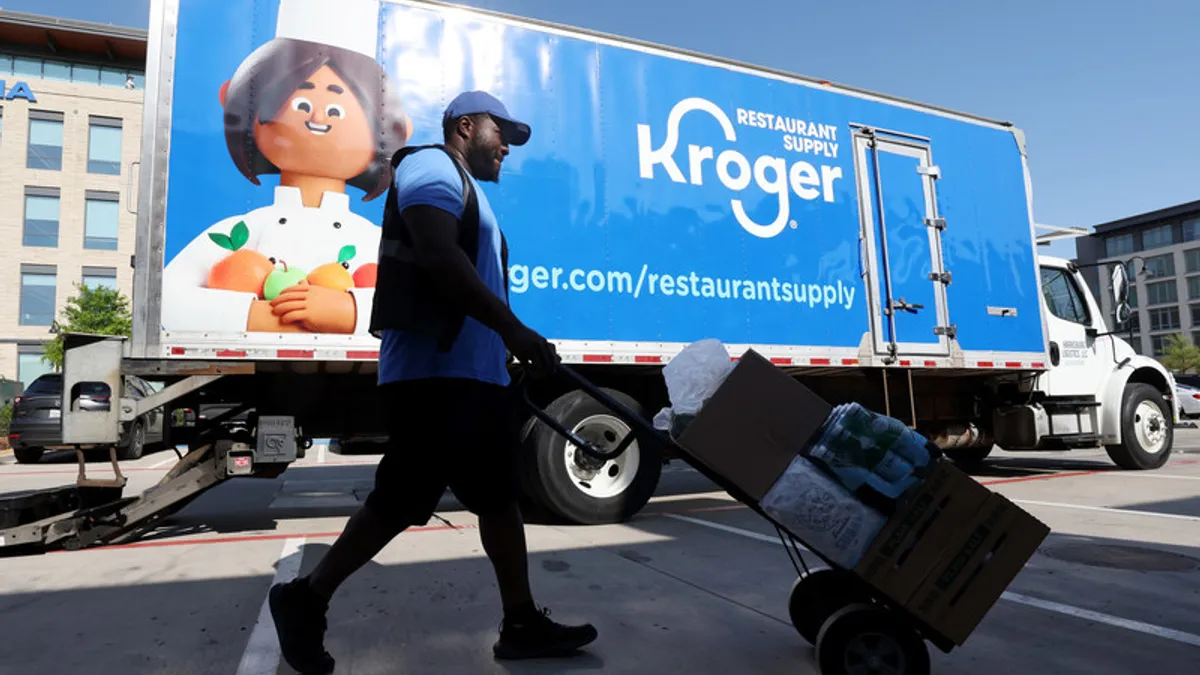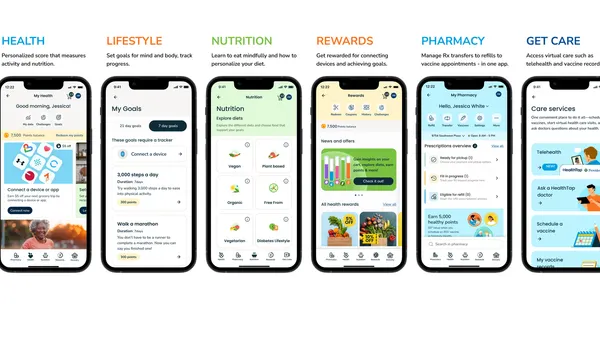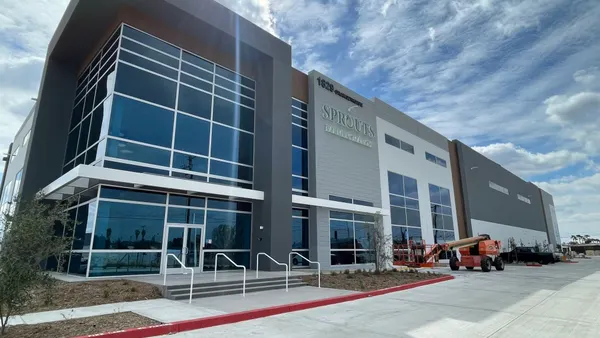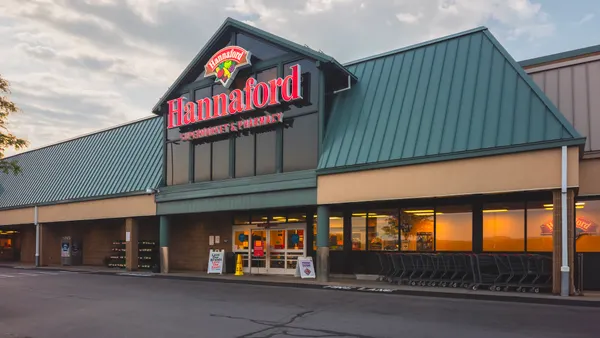Six members of Congress are calling on the Federal Trade Commission to stop the proposed $24.6 billion Kroger-Albertsons merger, saying that the companies’ divestiture deal falls short of addressing concerns around consumers, workers and the grocery industry.
“We urge you to oppose this proposed merger, regardless of the proposed divestiture,” the letter to FTC Chair Lina Khan said.
The letter, which was signed by Sens. Elizabeth Warren, Mazie K. Hirono, Bernie Sanders and Cory Booker and Reps. Summer Lee and Alexandria Ocasio-Cortez, claims that the combination of Kroger and Albertsons would result in “a duopoly with Walmart, with the two corporations controlling more than 70 percent of the grocery market in over 160 cities across the country.”
The merger would lead to raised consumer prices, increase the risks of price discrimination between food suppliers and buyers, decrease suppliers’ buying power and hurt workers by reducing competition for labor, lowering wages and minimizing unions’ power, the letter claims.
The Congress members also criticized Kroger and Albertsons’ $1.9 billion divestiture plan with C&S Wholesale Grocers, which includes selling 413 stores, eight distribution centers and five private label brands. The divestiture bid leaves room for C&S to buy up to an additional 237 stores to satisfy regulators.
“[S]tructural and behavioral remedies are difficult to administer and enforce and cease to be binding once the term of the agreement ends, and they often fail to maintain competitive conditions because, as stated previously, companies have an incentive to ensure that the businesses they spin off do not succeed,” the letter said.
The letter highlighted the “failure” of Albertsons’ 2015 deal to sell more than a hundred divested stores to Haggen, which Haggen then closed or sold back. Shortly after the deal, Haggen filed for bankruptcy in 2015 and sued Albertsons for allegedly undermining its expansion. The companies reportedly settled the lawsuit in early 2016.
“And while [Haggen] is the most egregious example of a failed divestiture, for decades Albertsons and Kroger have habitually reacquired stores that they had previously been forced to sell off,” the letter said, which also noted the divestiture woes with the Ahold-Delhaize deal in 2016 and Hertz-Dollar Thrifty deal in 2013.
The letter is the latest pushback to the proposed deal. This summer, seven secretaries of state raised similar concerns in a letter to Khan, urging the FTC to block the deal.
Ahead of a Senate antitrust panel last fall on how the Kroger-Albertsons merger could impact competition in the grocery industry, Booker along with Sens. Amy Klobuchar and Richard Blumenthal urged the FTC to investigate the proposed merger.
Kroger and Albertsons have weathered broad criticism about their proposed tie-up from lawmakers, consumer activists, unions and grocery workers who have claimed that the deal would hurt shoppers, suppliers and workers.
The grocery giants have continuously said that their combination would lower prices for consumers and lead to wage investments. Kroger has pledged to not close any stores, distribution centers or manufacturing facilities or lay off any frontline workers as a result of the merger.
On Wednesday, a Kroger spokesperson sent along a statement that reiterated many of these points and also noted C&S’s “more than 100 years of experience in the grocery industry.” The statement, along with a separate one from Albertsons, also brought up industry competitors Walmart and Amazon.
“The only parties that would benefit if this deal is blocked would be Amazon, Walmart, and other large, non-union retailers who continue to increase their dominance in the grocery space,” the Albertsons statement said. “A combined Kroger and Albertsons Cos. would ensure that our neighborhood supermarkets, some of which have been serving their communities for over 100 years, can better compete with these retailing giants.”
Kroger certified to the FTC on Nov. 15 that the company’s merger plan is in substantial compliance with the agency’s requirements, CEO Rodney McMullen told investors at the end of November, noting that the grocer expects the deal to close by early 2024.
Editor’s note: This story has been updated with comments from Kroger and Albertsons.












